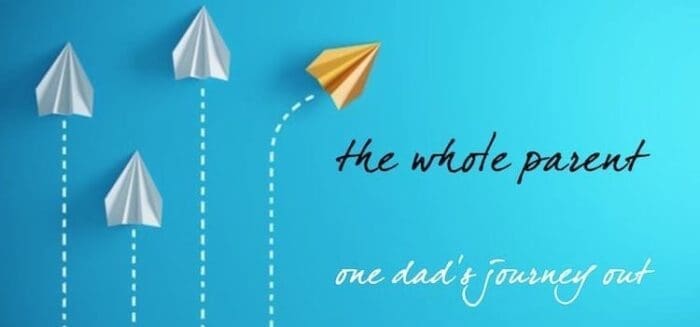Yes, we’ve all heard about manic or bipolar artists. Van Gogh cut off his ear, for goodness sake, was he mentally challenged? I’d say the answer is yes. But the fuzzier question is this: would the world have been a better place if Van Gogh had been given a tea each morning that cured his depression? Would our world have Starry Starry Night if not for Van Gogh’s dark periods?
Creativity and Mental Health
We know artists are temperamental. We know musicians often write out their sadness and depression in sad love songs. And the myth about creativity and depression is this: would our greatest artists have been as inspired and deep if they were not touched by some demons or depressions?
What’s your answer?
In his book, Against Depression, Dr. Peter Kramer writes about the failure of Prozac and the promises of pharmaceutical cures. Here’s ChatGPT’s summary of the book.
Peter D. Kramer’s book “Against Depression” offers a new perspective on depression, challenging the idea of “heroic melancholy” and presenting it as a devastating disease. Kramer shares groundbreaking research on depression, offering pathways toward resilience and providing hope to those who suffer from it.
We’ve got some odd ideas about depression in our society. And the media portrayal of “depressed” people can be pretty far off the mark. An actual video camera capture of modern depression would be BORING. Staying in bed. Isolating from everything and everyone we love. Feeling so hopeless you’d rather expire. Real depression doesn’t look like it does on television. Our depressed friends are not the quirky artists.
What Depression Teaches Us
Great adversity is often the tipping point for someone with a propensity toward depressive illness. If your parents had depression or your grandparents, you’re likely prone to darker periods than most of the people around you. And if one of the ways to transmute your sadness was through art, then we’ve got the key ingredients for linking depression and creative brilliance.
My moods are part of my life path. Since my early teens, I learned that my brain was playing evil tricks on me. The trick of making me give up on myself. The trick of imagining my life of sorrow and toil without end. The trick of convincing me that being alone was the best place for me to be, always. But, my heart knows that love, connection, and social interactions with friends and family are what also brings me joy. When I’m depressed I can’t imagine anyone choosing to have me around. So I vanish. I dive under the covers. I ruminate on the coming horrors of my downward trajectory.
What I’ve learned is this: it is just a mood, feeling, memory, reaction, or chemical trigger. My mood is not my life, it’s not my personality, it’s not my creative engine. Mood is part of what makes me a deep feeler, a creative/sensitive soul. Mood, however, is not the key to my creativity, it’s actually one of the parts of myself that drags me out of a creative spurt. Mood can interrupt a morning. Mood can wake me at 2 am with a panicked dream about losing my job. Mood can take the joy out of morning coffee, giving it a bitter and hopeless taste.
I Am Not My Mood
I’ve written for several years about my process of detaching from the moodiness of my life. I have a simple routine I put in place when the black bastards begin to circle my bed.
- Meta awareness: I take a detached view of myself from an “observer” perspective. “Ah, John is having a mood moment.”
- Name the feeling: “I can feel a lump of sadness in my chest thinking about how much I miss my son.” I am having a feeling of sadness.
- Appreciate and release: “I have sadness this morning about my relationship with my son. I feel deeply. I love strongly. I am missing my connection with my son.” And in a exhale of breath, I have to let go of my son and his independent life path.
- Action: The final step for me, is taking the next right action. Is there something I can do right now to engage my son? Do I need to go get some exercise and feel into my body again? Can I let my son do his own thing, and not be hurt by his indifference?
Just because I feel sad about my son, does not mean I need to stew in the feelings. I could choose to mine that pain for a song or a poem. I could try to transmute the pain into something creative. But, I can also just move on to what’s next in my life. What needs to be done next? This is the Chop Wood, Carry Water mental mode of doing what needs to be done regardless of how you feel about doing it. I don’t like doing dishes or laundry, but it must be done. I don’t like cleaning my house either, and this one has more flexibility within my feelings of satisfaction and comfort.
I can have a mood. Observe and label it so that I can understand what’s behind the mood. And then, my choice is to stay with the mood or move into action. There is a time and a place for feeling the feelings. And we have many tools at our disposal to release those dark moods. One of my most effective processes is writing about it. Putting words and structure to my pains or regrets helps give me a perspective of my variability. I can be UP and I can be DOWN. Most of the time I try to keep moving toward my dreams and my goals. All the range between really up and really down are where we do our best work.
Depression Kills Desire
Creating stories or songs or poems is an act of desire and ambition. I’m not sure if I’m trying to become famous after 40 years of being a musician, but I’m still trying to be heard. I’d still like you to find me on Spotify and “follow” my band Buzzie. However, my ambition these days is more about my own creative satisfaction and satiating my capacity for expressing both joy and pain. Creative output is a learning process for me every time. A song becomes a journey I follow, sometimes for years, to complete the lyric, the melody, the chord progression. If I listen to my heart long enough, I will find the notes and words to bring my vision to light.
In a down state, I’m much less capable of self-expression. I begin to lose my optimistic perspective. I start looking at my life, my books, or even this blog, as shit. “I have done nothing of value,” my mind says. And in that state, it can be very difficult to find the observe/label/let go/next approach. My last big fall, at the dawning of the pandemic, was catastrophic. My brain attached to the end-of-the-world scenario. I dug in hard. I lost all momentum and perspective about my creativity or need for expression. I became a shell of myself.
But what I know, in my lifetime, my desire ALWAYS comes back. Sometimes with the help of medication, sometimes without. Over time, my depression, even as dark as it has ever been, releases me back to my more-well state. Eventually, I pull back up to my ambitious and driven self. And in the case of that last fall, I looked around at the state of my romantic relationship at the time and could see that I was never going to be met in the middle by this woman. I found the energy and courage to be alone again. I was well enough to see that my lover was incapable of loving me back in the way I needed to be loved.
Mindfulness and Medication
In the end, my process has continued to be one of mindful awareness, occasional medication, and a good care team of loving people around me. And what Dr. Kramer learned years after writing Talking to Prozac is that pharmaceuticals alone were not going to cure depression. Some balance of therapy, release, and possibly medication is the path to giving mood-enhanced people the best chance of living a semi-normal life.
Here is ChatGPT’s summary of this groundbreaking book by Dr. Kramer.
In his book “Ordinarily Well”, psychiatrist Peter D. Kramer examines the controversy surrounding antidepressants and the clinical decision-making process of prescribing them. Kramer critiques industry-sponsored research and the growth of skepticism towards antidepressants, while also emphasizing the importance of patient empathy in the decision-making process. He provides an updated perspective on depression as an illness and the effects of antidepressants on patients’ quality of life, ultimately portraying them as useful tools for helping people achieve ordinary wellness.
Love Is the Antidote to Depression
Here’s a message to my lover. I may get sad again. And, there is nothing you can do to make me happy again. But, if you will stay beside me, I will show you how I rebound. I will try to be honest about sharing what’s going on, but sometimes I can’t even admit it to myself. What I can promise is this: I will return.
I thrive in a loving relationship. The base of love gives me the confidence to keep reaching for higher stars. I keep coming back to my connection with one other person. My lover is my inside partner, my confidant, my home base, where I can be regardless of what “mood” I might be in.
As we learned from Brené Brown in BRAVING, “I will stand beside you in this darkness. I cannot relieve your struggle. I will not try to fix you. I will hold your hand and love you steadfastly while you find your way back to the surface.
Namasté,
John McElhenney – life coach austin texas
Facebook | Instagram | Pinterest | @wholeparent
Additional articles:
- “You Look Tired” Let’s Talk About Living Your Best Life
- Here and Now: Returning To Peace, Learning Patience
- Capturing Love, Loss, and Laughter in the Moment
- Sharing Our Perfect Moments | The Yes Practice
My first book on depression and my own recovery story is now available through Amazon. Here Comes the Darkness: Surviving and Thriving After a Diagnosis of Mental Illness.





